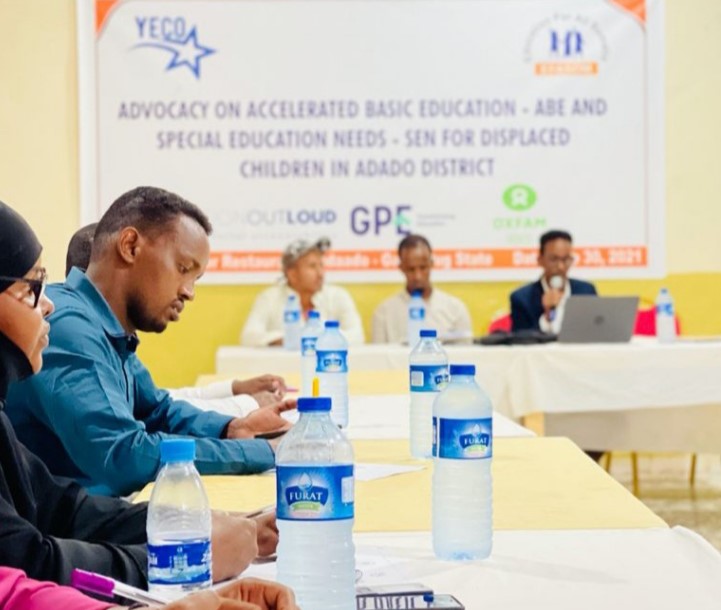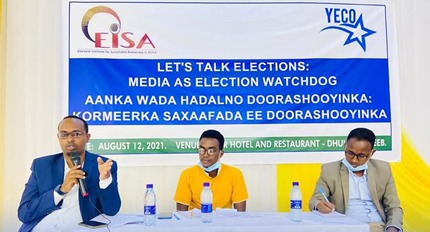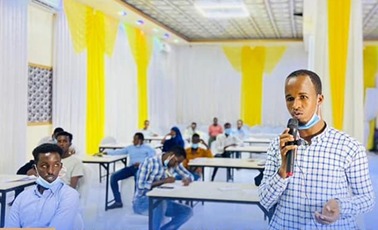
Access to quality education is crucial for the holistic development and future prospects of every child. Unfortunately, displaced children often face significant barriers to education due to their challenging circumstances. However, in Cadaado district, Galmudug State, a remarkable initiative took place to address this pressing issue. Youth Empowering Council (YECO), in collaboration with Education for All Somalia (EFASOM) and OXFAM Netherlands, supported by funds from the Global Partnership for Education (GPE) under the Education Outloud Project (EOL) Phase I, organized an advocacy meeting to prioritize Accelerated Basic Education (ABE) and Special Education Needs (SENs) for displaced children.
The meeting, held in Cadaado district, was opened by the district education officer (DEO) while the panelists and participants engaged in an in-depth discussion on ABE and SENs for displaced children. The event brought together key stakeholders, including education experts, community leaders, educators, parents, and representatives from local organizations. Their collective dedication and shared commitment to the cause set the stage for a productive and impactful dialogue.
During the meeting, the importance of ABE and SENs for displaced children was emphasized. Speakers highlighted the urgent need to provide these children with tailored educational opportunities that address their unique learning needs. The discussions revolved around innovative strategies, inclusive teaching methodologies, and the provision of adequate resources to create an enabling environment for their education.
The meeting concluded with remarks from YECO’s Executive Director, Mohamed Shariif, who expressed gratitude to all participants for their active engagement and valuable contributions. He emphasized the importance of continued collaboration among stakeholders to ensure the successful implementation of ABE and SENs programs in Cadaado district. The event served as a catalyst for future action, inspiring attendees to work together and advocate for policy changes, resource allocation, and community support to address the educational needs of displaced children.




